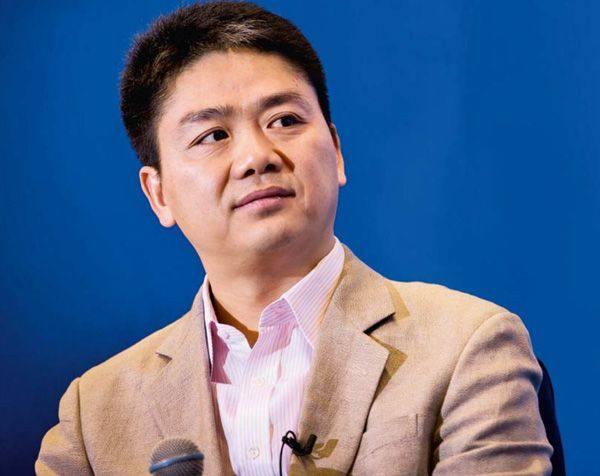Richard Liu:Entrepreneurial Evolution
by Xuan Xuan

Founder and CEO of Jingdong Mall (JD.com), Chinas second largest online retailer, Richard Liu graduated from university in 1996. In 2004, he first began to sell IT products online, and gradually diversified Jingdong Malls offerings from only electronics to garments, accessories, cosmetics, and many others. Today, Jingdong is Chinas largest B2C direct sales e-commerce company.
In 2007, Jingdong dived into comprehensive direct B2C e-commerce. The same year, due to constant customer complaints about slow delivery, Liu established his own logistics and delivery system. His major rivals at the time were two e-commerce giants: Dangdang.com and Amazon.cn. By 2012, Jingdong had secured a massive share of Chinas direct B2C market, trailing only Taobao.com. For the past nine years, the average annual growth rate of Jingdong Malls business volume has exceeded 200 percent.
However, this legendary entrepreneurs first business venture ended in failure. Born in Suqian City of Jiangsu Province in 1974, Liu set off for Beijing to attend university at the age of 18, majoring in sociology. He soon realized that his major wouldnt produce many employment options, so he taught himself computer programming. By his third year in university, he was earning extra cash through programming. At the time, entrepreneurialism was highly encouraged, and Liu followed the trend by opening a restaurant with his programming earnings.
After only a few months, the restaurant closed – its profits drained by embezzlement by his staff. Liu not only lost everything, but had to borrow from his father. “I was so disappointed,” Liu recalls. “Is man good or evil? How could my employees do this to me when I treated them so well?”
Aiming to pay off his outstanding debts, Liu went to work for a Japanese company. During his years there, he gradu-ally came to a realization: “The restaurants failure was my own fault. I didnt establish a management structure, oversight mechanisms, financial systems or procedures.” After a few more programming jobs over two years, he repaid all his debts and was ready to once again start a business.
In 1998, with only 12,000 yuan in start-up capital, Liu opened a shop selling electronic products in Beijings Zhongguancun, the citys notorious retail tech district. His business expanded quickly. By 2003, he had already opened 12 branches and earned more than 10 million yuan.
For Liu, 2003 marked a turning point. SARS broke out in China that year. Fearing the pandemic, many people stayed at home – including his customers and employees. Unable to run the shops as usual, Liu closed down all 12 stores, and watched his sales volume plunge to zero almost instantly. No one knew when SARS would end, so Lius only remaining option was to sell his products online. Liu bet on the internet.
Before SARS, Liu knew little of the web or even bulletin boards and forums. But he quickly learned to sell his products on such sites, and took the products to the post office for delivery, wearing a mask. In 2004, Jingdong Mall officially went live.
“It was all an accident. If I forced my employees to continue working in brickand-mortar stores, I wouldnt have entered e-commerce,” Liu says.
In the eyes of many, Liu is labeled“daring,” “aggressive,” and “ruthless.” Two reasons most likely inspired such adjectives: Jingdongs rapid expansion and Lius management style. Liu believes that a capable administrator must combine democracy and autocracy. At the operational level, a high level of democracy is needed, with which administrative personnel should not meddle. But at the strategic level, sometimes autocracy is essential.
Along with its rapid expansion, Jingdong has also witnessed change.
This year, Jingdong began to limit new hires in hopes of slowing its growth, optimizing its entire system and laying a solid foundation for growth in the coming decade. Liu explains that as the base of Jingdongs business grows gradually, maintaining a high growth rate over a long period could prove disastrous.
In years past, most of Jingdongs senior executives were recruited from other companies, but today he is more willing to employ homegrown management personnel. He estimates that in the future, 70 percent of senior executives will be promoted from within Jingdong itself.
However, compared to subtle internal adjustments, outsiders have been more interested in obvious changes. This March, Jingdong announced that its previous domain, 360buy.com, would be redirected to JD.com, and changed its logo to a metal dog. Instantly, many speculated that its choice of mascot was made to establish a direct rivalry with Tmall, which happened to be represented by a cat. Liu explained the changes from another perspective.“360buy.com is not an easy domain for Chinese consumers to remember,” he explained. “As for the dog, we wanted to attract more female customers and develop a softer image. The dog is a close and intimate friend.”
The famously aggressive CEO is also reforming his own image. At a staff meeting in early 2013, Liu claimed that his only goal for the coming decade was to care more for Jingdong employees. “When an enterprise reaches a new level, its CEOs managerial and working styles should adapt accordingly,” Liu says. “I need to change too. Otherwise, I could become the obstacle preventing Jingdongs development.”

